London was founded by the Romans over 2000 years ago (around 50 AD). The Romans turned their new settlement into a prosperous port city.
Roman relics and architectural ruins were found in London, as were all Roman settlements. Some of the city’s oldest places date back to this Roman occupation. Most of the places on this list were built to serve as religious worship or royal dwellings.
These places were often destroyed by wars, London fires, or other disasters, but were eventually rebuilt and are still in use today.
Table of Contents
1. Westminster Hall
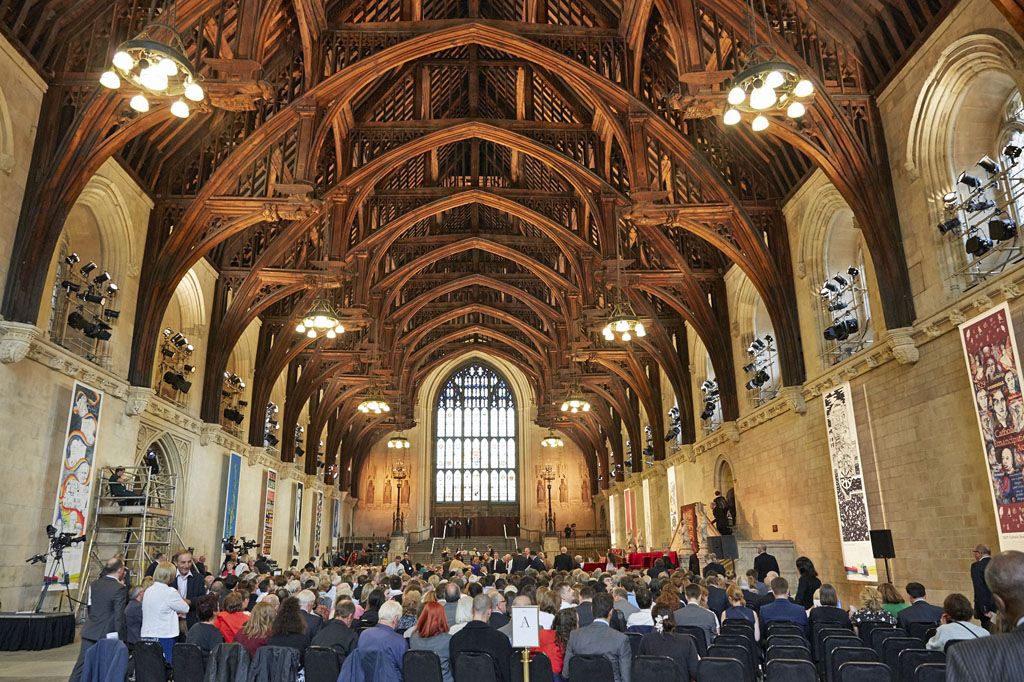
Westminster Hall is the oldest part of the Palace of Westminster and is used as a meeting place for the British Parliament. The hall stands out as one of the only parts of the palace that remains almost in its original form.
The hall was built during the reign of William II in 1097, and its construction was completed two years later. This is one of the oldest cities in England.
King Richard II is heavily responsible for adding ornaments to the hall, including the 13 statues of King England dating back to the confessor Edward, which remains in the hall today.
During World War II, Walter Elliott’s aggressive decision prevented the hall from being destroyed and required minimal repairs. As one of England’s most valuable locations, Westminster Hall continues to be maintained and repaired as needed.
2. White Tower
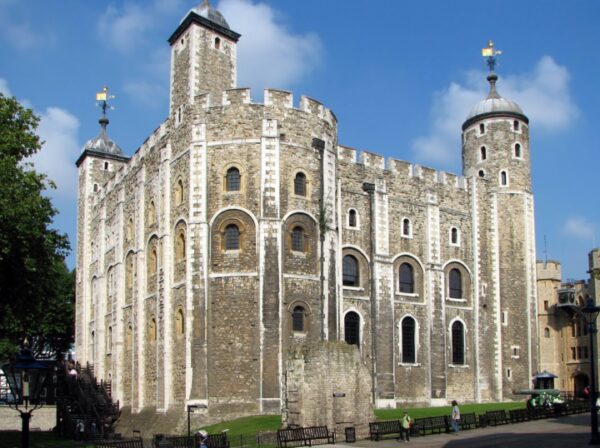
The exact date of construction of the White Tower is unknown, but it is widely accepted that construction began in 1078 and ended around 1097. After completion, the White Tower served several purposes, including as a royal residence. There are chapels and prisoners.
The White Tower was expanded and maintained by the later king, and Henry III was responsible for painting the towering white which was given its current name.
Today, the White Tower, along with London’s Tower, is a UNESCO World Heritage Site and a very frequent tourist attraction. This tower exists in one of the most historic cities, the UK.
3. Pyx chapel or Pyx Chamber
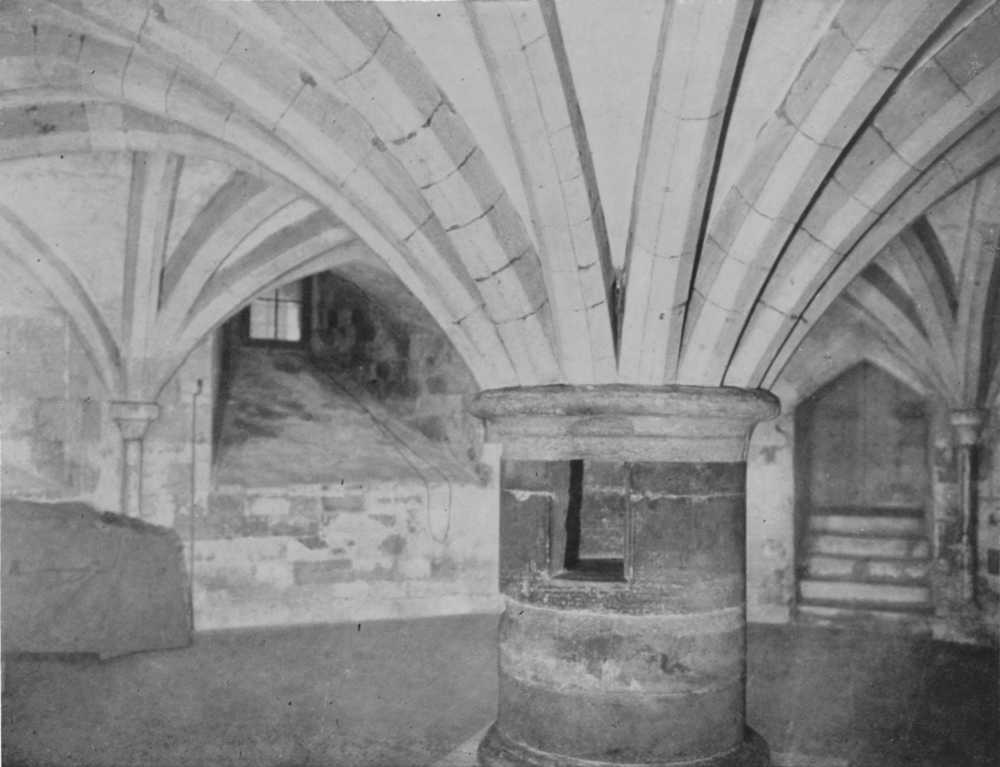
The Chamber of Commerce dates back to the early days of Westminster Abbey when the confessor King Edward decided to rebuild the former monastery on the premises. The Pyx Chamber is located in the eastern corridor of the church and is part of the Undercroft. Some of the original tiles from the 11th room can still be seen today.
The Pyx room was used as a treasure by the British crown and monastery. At that time, it was considered the safest room in London. This room is called “Pyx” from a wooden box where gold and silver debris awaited Pyx’s decision and guaranteed the purity of the coins cast.
4. All the treasures by the tower
The Church of the Holy Bride is considered old, but all the treasures by the tower often state that it is the oldest church in London. Unlike other ancient churches, All Hallows has a definitive date of establishment, backed by well-preserved records.
All Hallows by the Tower was founded by Barking Abbey in 675 AD and was originally called All Hallows Barking.
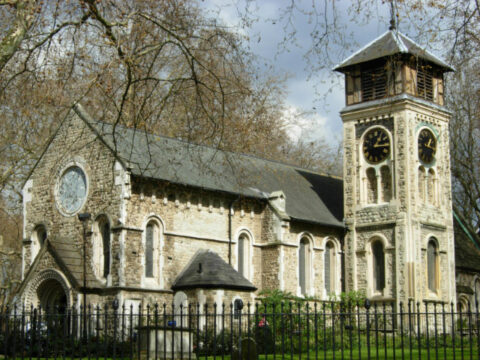
Due to the proximity of the church to the Tower of London, All Hellos has been an important place for the British royal family for centuries. All the treasures by the tower were often used as temporary burial sites for those bowed down at Tower Hill.
The church was severely damaged by the 1650 explosion but survived the nearby Great Fire of London in 1666. Since then, all the treasures by the tower have been restored, and now there is a museum displaying religious crafts.
It was in the oldest village in England.
5. Church of Santa Novia
According to the official history of the Church of the Holy Bride, the place where the church was located was a place of worship shortly after the Romans founded London in 43 C.E.
At the beginning of the 6th century; the first stone-walled church was built on the premises. The church is believed to have been founded by the Celtic monk Holy Bride, who settled in London.
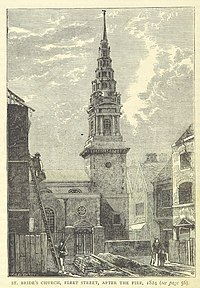
The Holy Bride has become an important gathering place because of its accidental location as the first church found on the route between London and Westminster. One of St Bride’s greatest fame is that the cemetery was the site of the first mobile printing press in Britain in 1501.
Unfortunately, St Bride was destroyed by the 1666 London fire. The church has been completely rebuilt and is now designated as a Grade I building, making the Church of the Holy Bride a protected historical site.
6. Old Church of St. Pancrase
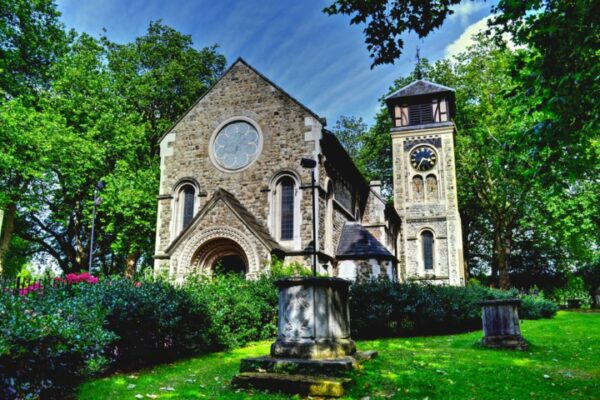
The exact origin of the ancient Church of St. Pancrase is unknown, but it is believed to be one of the oldest places of Christian worship in England. According to information panels around the church, St. Pancrase was probably built in the early 4th century and originally served as a place for public worship and gathering of the Romans.
When St. Pancrase was rebuilt in the 19th century, there were Roman tiles at the base of the tower and a stone altar built in 625 C.E. The church has been restored several more times and is still operating as part of the former Ministry of St. Pancrase Team.
7. Temple of Mithra (London Mithraeum)
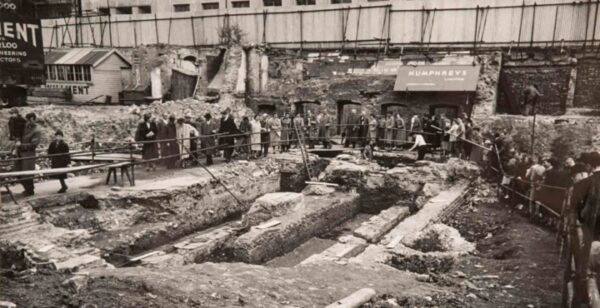
The Temple of Mitras is one of the few traces of the Roman Empire remaining in the area and one of the oldest places ever discovered in London.
This temple, also known as the London Mitra Eum, was built around 240 AD. It was dedicated to the mysterious Roman god Mithra. Then, in the early 4th century, the temple was redistributed to Bacchus.
London Mithraeum was discovered in 1954 during the construction of a building near the Walbrook River. After its discovery, the temple was Grimes, then the director of the Museum of London.
Grimes and his team have discovered some unusual artefacts, including marble statues of Roman gods such as Minerva and Mercury, and over 400 wooden writing tablets.
Inside the tablet are London’s oldest financial statements and the first mention of London by name. In a written document.
